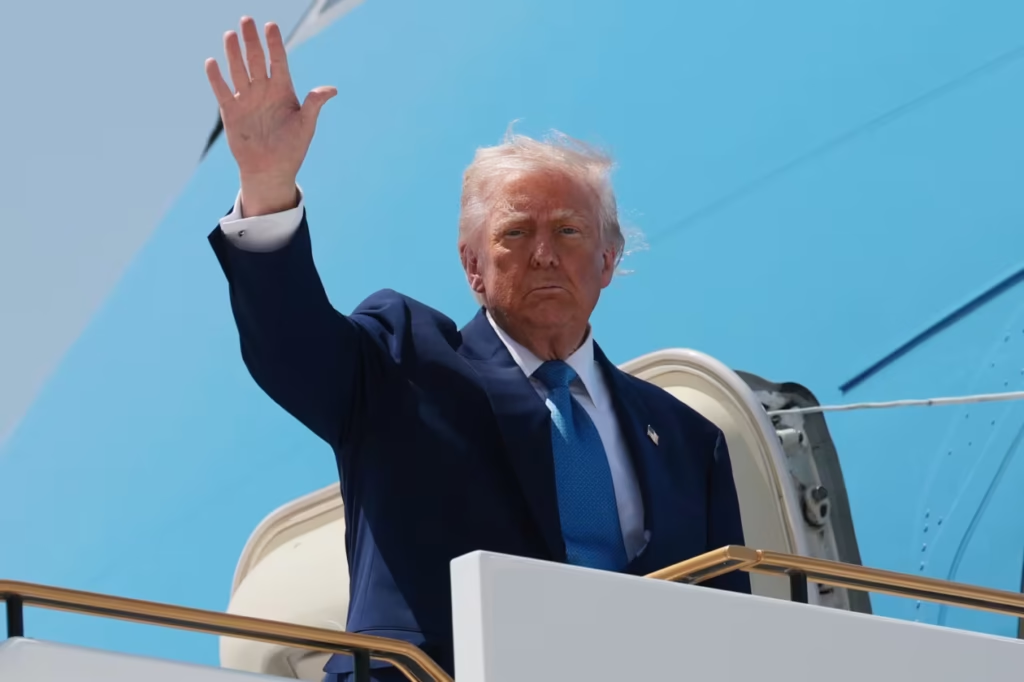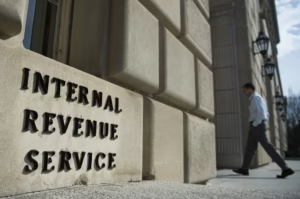The U.S. government’s soaring budget deficit and President Donald Trump’s plans to add trillions more to the national debt were brought into sharper light by Moody’s downgrade of U.S. credit on Friday.
Analysts caution that once the U.S. Senate gets its hands on the plan, it could become even more costly. The downgrade came as House Republicans pursue a tax and spending bill that may drastically worsen the nation’s budgetary situation.
This implies increased borrowing, increased pressure on the yields on Treasury bonds, and possibly higher rates on everything from auto loans to mortgages.
According to Henrietta Treyz, director of economic policy at Veda Partners, the Senate isn’t as interested in making politically challenging changes to Medicaid and reducing clean-energy tax credits that help a lot of business endeavors in Republican-controlled states.
One reason the House might not pass the tax package by Speaker Mike Johnson’s self-imposed Friday deadline is the Senate’s lack of desire for significant budget cuts.
“House members are being asked to walk the plank politically for a bill that senators from their own party are are telegraphing clearly will not pass in their chamber once it gets to them,” Treyz said in a client note on the weekend.
In order to get the bill to a vote in the entire House before the Memorial Day break, House leadership intends to bring it up in the Rules Committee this week, where amendments will be suggested.
The Senate would next start considering the proposal if it passed the House.
Flashing debt warning lights
Since Trump entered office on pledges to reduce consumer prices and the cost of living, yields on the U.S. government debt have steadfastly remained high.
Monday saw a slight increase in U.S. government bond yields (BX:TMUBMUSD10Y), with some analysts citing a decline in foreign demand for U.S. assets due to policy uncertainty.
The bond-market response is linked to “political and institutional breakdown” in the U.S. government, which has lost the ability to “course correct” and deal with clearly unsustainable budget deficits, according to Thierry Wizman, strategist at Macquarie, who wrote the note on Monday.
“Fiscal hawks can only hope that because of the Moody’s downgrade, and because long-term yields are rising again, ultra-conservatives in the House will be successful in getting deeper cuts to government spending,” the author said.
Because tariff charges and unyieldingly high borrowing rates reduce consumers’ purchasing power, the stakes could be high for them as well.
The tax plan and tariffs will keep the Fed from cutting interest rates, according to a report released Monday by David Kelly, chief global strategist at J.P. Morgan Asset Management.
“Long-term interest rates may well drift up due to the rising borrowing needs of the federal government and the psychological impact on markets of further evidence that Washington has no intention of tackling the nation’s worsening debt problem,” he stated.
It is unlikely that the Senate’s noises will provide markets additional assurance that the upper house prioritizes reducing the deficit.
Medicaid chaos
Strict Medicaid cuts, which the Congressional Budget Office estimates may save the federal government $715 billion but result in 8.6 million fewer Americans having health insurance by 2034, are one of the House bill’s largest sources of savings.
Many Republicans are hesitant to support legislation that limits Medicaid enrollment and utilizes the savings for tax cuts that primarily benefit the rich. That would be the biggest rollback in the history of the program, which serves 78 million Americans.
These concerns were expressed by Missouri Republican Senator Josh Hawley in a recent editorial in the New York Times, where he made a strong case against cutting Medicaid expenditure.
They aim to “build our big, beautiful bill around slashing health insurance for the working poor,” according to Hawley. “But that argument is both morally wrong and politically suicidal.”
In a statement released on Monday, analysts at Beacon Policy Advisors stated that Hawley is not alone in the Senate in being hesitant to support large Medicaid cuts.
“GOP senators are warning some big changes could be in store,” they stated.
The package, which conservative hardliners briefly stopped in the budget committee on Friday before permitting it to move forward on Sunday night, is expected to have even more drastic Medicaid cuts in the House version.
Texas Republican Representative Chip Roy stated on Sunday that he had withdrawn his initial objection to the bill’s passage because it will now more aggressively reduce energy-production subsidies and expedite new job requirements for Medicaid.
Still, he said that the bill “doesn’t meet the moment” since it doesn’t enough reduce spending.
The issue of SALT
In the meantime, moderate Republicans in the House are calling for the costly partial reinstatement of state and local tax deductions on federal returns.
To the chagrin of GOP lawmakers from high-tax states like New York and California, Republicans capped those deductions at $10,000 in order to help fund Trump’s 2017 tax cuts on individuals and corporations.
The House version of the measure raises the ceiling for joint filers earning less than $400,000 from $10,000 to $30,000. However, some Republicans argue that the cap is still too low, and if it isn’t raised higher, they probably have the votes to completely sabotage the package.
Has the bond market had enough?
Politicians in the United States have long faced criticism for squandering funds and avoiding tough choices that could cost them reelection. However, the crop of today is an anomaly in history.
The Congressional Budget Office projects that the federal budget deficit would reach $1.9 trillion in 2025, which is more than 6% of GDP—a sum that is rarely seen outside of times of war or other emergencies. The deficit was $1.8 trillion in 2024.
A sustainable deficit, according to economists, is one that is equal to the growth rate of the economy, which has traditionally ranged between 2% and 3%.
The U.S. should not even contemplate extending the 2017 tax cuts, let alone introducing additional ones like tax advantages for overtime pay and auto loan interest, according to numerous analysts.
In an essay published Monday, former Bank of America chief economist Ethan Harris contended that if the United States were not at the center of the global financial system and if U.S. Treasury debt were not the legacy “risk-free” asset controlling global markets, actions such as those taking place in Washington today would have already led to a situation in which Congress would have had to reduce the deficit in order to put an end to a bond-market uprising.
“In the long run, some kind of funding crisis seems almost inevitable,” said Harris, “because that seems to be the only thing that will wake up Washington.”





